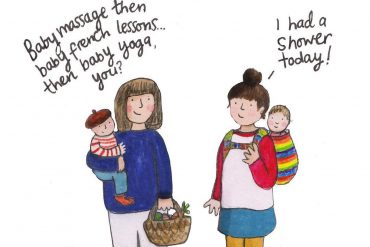For role-modelled behaviour to be efficiently transmitted, three main conditions must be met. Firstly, children are more likely to imitate role models that they look up to or love. That’s why parents are such powerful role models. Secondly, the role model’s actions are more likely to be imitated if they are seen to meet with success. In other words, the attitude that “might is right” is passed on when a spanking disciplinarian succeeds in changing a child’s behaviour, and remains unchallenged. The third condition is that violence must be legitimised and sanctioned in order to be imitated. In other words, children more readily adopt violent attitudes if they have been made to believe that harsh punishment is “deserved”.
In other words, children more readily adopt violent attitudes if they have been made to believe that harsh punishment is “deserved”.
It’s been shown that violent children come from violent or neglectful homes. This matter has been put to rest. But only about half of abused children grow up to be abusive. Why? Individuals who remain convinced that verbal or physical assaults against them were “deserved” are significantly more likely to act out violently. This is also true for violence witnessed against others. Bandura (1973) refers to a study that found that children displayed much more imitation of violent behaviours depicted on video, if these behaviours were approved by an adult, less so if the adult was silent, and even less if the adult expressed disapproval of the video violence. Children who grow up believing that being hit is what they well deserved, go on to be more accepting of and de-sensitised to violence in general. They are candidates for the ranks of bullies, victims, or both.
A side-effect of harsh punishment is that it de-sensitises people to their pain, then also to the pain of others. This de-sensitisation process is what facilitates the acting out of violence. The process of de-sensitisation to violence begins when a child who, branded as “bad” or “naughty”, accepts the blame and the assault that comes with it. A “tough skin” grows over the wound, which obscures the depth of the pain that throbs beneath. The pain and betrayal felt is sealed off, minimised, trivialised, or denied. Deafness to one’s own pain entails indifference to the pain of others. Those whose anger boils over become bullies, those who are paralysed with fear, the victims. Others hover in between, harbouring a predilection to retributional and “might is right” attitudes. The landscape is dotted with the punished and the beaten; who grow up to make light of it, or to stoically profess that: “it never did me any harm!”.
How grossly adults tend to dilute or whitewash any violence they suffered as children, is grimly illustrated by studies such as that of Berger et al (1988) and Knutson and Selner (1994). Both studies found numerous respondents who reported having been punished in their childhood so brutally as to require hospitalisation, but only 43% and 60% (respectively) of these considered themselves abused! By contrast, Hunter and Kilstrom (1979) found that people who were openly angry about any abuse they had suffered as children, were statistically less likely to transmit this abuse onto others. Beaten children who are at risk of becoming bullies or offenders can be helped once somebody can make it abundantly clear to them that spankings or thrashings are not just nor deserved.
A wholistic and therefore more effective approach to “treating” school bullies would be to compassionately examine the environment in which the violent responses were learned, and then to work co-operatively with family members to alter the dynamics of this environment. If violence is an adaptive behaviour learned within a family system, it makes no sense to teach a bully not to be violent, only to send him or her back to the original system that they are powerless to change. It must be understood that bullying behaviour is a reaction to powerlessness. To consider bullies as offenders is superficial, when in fact, they are victims. The fundamental way in which the family operates must change, through exposure to alternative means to authoritarian, punitive or “power-over” methods of child-control.
Systems-theory based family therapy models are non-blaming, they recognise and affirm that each family member is doing their best given the resources available to them. New options for more enhancing ways to interact can be taught, without finding fault in any individual. Why not have a policy that makes it standard procedure to invite parents or carers of school bullies to the school? The purpose would be to identify any areas where parents might need support through stressful situations, to train parents in assertive and non-authoritarian parenting methods, and to empower parents by including them co-operatively in programs to assist their children.
As long as any kind violence is sanctioned in the home, there will be bullies. Bullies in schools, bullies in business, bullies in politics. There will also be victims. This is not a fact of life, but an artefact of history. Historians and anthropologists have only recently discovered that, up until very recently, and for most of human history, child-rearing has tended to be extremely violent (de Mause 1982 and 1988, Blaffer-Hrdy 2001, Boswell 1988). It is no wonder that violence persists in so many forms, across all age groups, and that most of us are capable of slipping and treating our children violently on occasions, even if we strive against it.
The good news is that the beating, spanking and verbal abuse of children is on its way out, as an overall world trend. So far, over ten countries have legislated against corporal punishment in the home, many more are in the process of doing so, and over 100 countries have banned it from their schools. A survey by Gelles & Straus (Journal of Interpersonal Violence, June 1987) found that although there still is an extremely high incidence of violence against children in the USA, it had decreased from 1975 to 1985 by a factor of 47%. Trends such as these are cause for optimism that bullying will become a rarer phenomenon. This progress will accelerate if we keep remembering that every bully we meet is someone who is being or has been bullied; if we endeavour to treat the system rather than the symptom.
Robin Grille is a Sydney based psychologist, and author of Parenting for a Peaceful World (Longueville Media, 2005) and: Heart to Heart Parenting (ABC Books, 2008). For more information, visit: www.our-emotional-health.com










